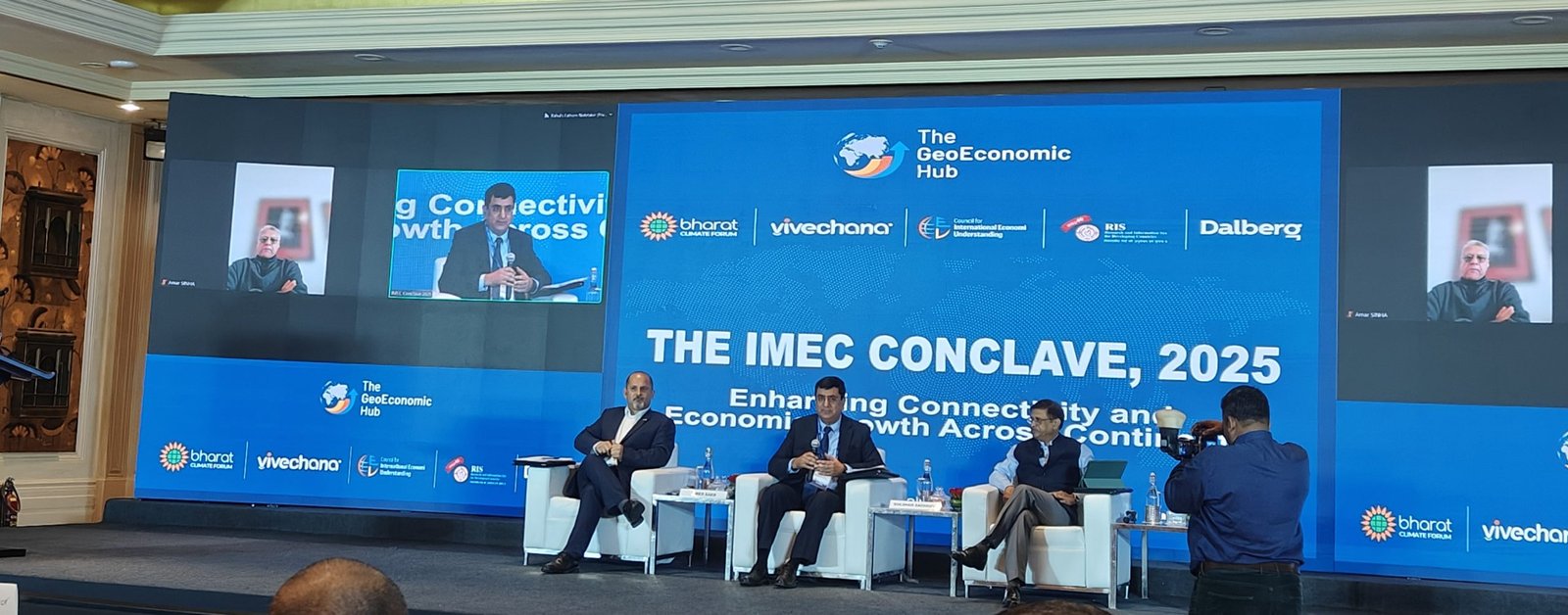
At the IMEC Conclave 2025 held in New Delhi, Mr. Fares Saeb, Deputy Chief of Mission at the Embassy of Israel in India, offered a compelling perspective on the strategic significance of the India-Middle East-Europe Economic Corridor (IMEC). Representing a nation that lies at the crossroads of West Asia and Europe, Mr. Saeb emphasised Israel’s unique position and commitment to the initiative. “I believe that Israel brings one of the broadest and most comprehensive perspectives to the India-Middle East-Europe Economic Corridor (IMEC),” he said, setting the tone for his remarks that touched upon geopolitical realities, economic ambition, and a vision for lasting regional peace.
IMEC: A Catalyst for Deepening India-Israel Ties
According to Mr. Saeb, IMEC is not just a trade corridor—it is a strategic platform that reinforces and deepens the growing relationship between Israel and India. “We see IMEC as a vital and strategic initiative—one that plays a key role in deepening our relationship with India,” he stated, while also underlining the broader geopolitical scope of the corridor.
Israel’s ties with India are rooted in mutual economic interests, technological collaboration, and shared democratic values. IMEC, Mr. Saeb noted, seamlessly aligns with these foundations and holds the potential to create a transformative impact on the region.
A Bridge Between West Asia and Europe
Highlighting Israel’s geographical and historical placement, Mr. Saeb described the country as a natural connector between continents, “Israel views itself as a bridge—not only geographically but also historically and strategically—between West Asia and Europe.”
This dual identity, he argued, enables Israel to play a pivotal role in advancing IMEC as a cohesive corridor that transcends borders and cultures.
The Abraham Accords and Regional Stability
Reflecting on the broader Middle East context, Mr. Saeb highlighted the significance of the Abraham Accords in fostering peace and collaboration. He noted that the Accords have opened pathways for normalization with several Arab and Muslim nations, and expressed optimism about expanding these efforts further. “One of our primary aspirations is to expand this circle of peace and normalization—particularly with key regional players like Saudi Arabia, which holds a central role in the IMEC project.”
He also referenced the 2023 G20 Summit where the corridor was officially endorsed by leaders including President Biden and Prime Minister Modi, affirming global commitment to the project.
A Call for Inclusion and Progress
Despite Israel and Jordan not yet being formal signatories to IMEC, Mr. Saeb highlighted their active involvement and strategic importance. “Our hope is to see Israel and Jordan officially become part of IMEC. We believe that this will not only enhance the project’s viability but also significantly contribute to regional stability.”
He spoke candidly about the changing dynamics in the Middle East, particularly post the October 7 attacks, and called for a collective regional effort toward de-radicalization. “It has become even more evident to many partners in the region that stability requires a collective effort toward de-radicalization… and we believe that IMEC has the potential to play a transformative role in this regard.”
Infrastructure, Trade, and Trust
Mr. Saeb noted that portions of the corridor—especially the India-GCC segment—are already operational. Israel’s ports, such as Haifa and Ashdod, serve as crucial entry points for European trade, with Haifa being one of the most efficient ports globally.
However, he stressed that for the land corridor linking the UAE and Israel to materialize, all involved stakeholders must contribute constructively. “We place immense trust in India and the United States to guide this process forward… India, especially, is poised to play a far more prominent leadership role in this initiative.”
Economic Growth as a Path to Peace
Mr. Saeb reiterated the broader vision behind IMEC—not just economic integration, but fostering global peace. “Economic growth is not just about development—it is foundational to regional and global peace. We believe in the transformative power of IMEC, and Israel is fully committed to being a part of this shared future.”
Leave a Reply